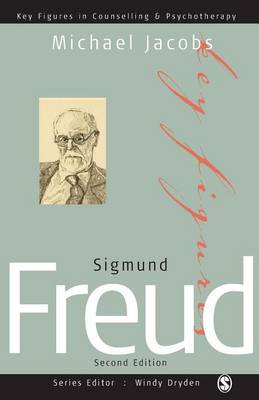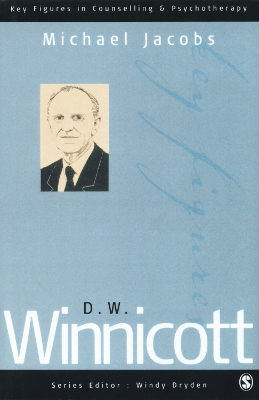Key Figures in Counselling and Psychotherapy
2 total works
`This is the Second Edition of a book first published in 1992 as part of the Key Figures in Counselling and Psychotherapy series edited by Windy Dryden. It has proved a successful introduction to the life and work of Sigmund Freud: in this present edition Michael Jacobs takes the opportunity of the new translation of Freud now appearing to offer more suggestions about reading, particularly the papers of technique available through Virago's 2001 publication of the Standard Edition' - The Journal of Analytical Psychology
In refreshing contrast to most other books on Sigmund Freud, this is a highly accessible account of his life and ideas, which focuses on the relevance of Freud's work for contemporary approaches to counselling and psychotherapy.
The book provides an overview which is based firmly on Freud's own writings, but which goes far beyond a recapitulation of the existing literature, to offer fresh insights and some surprises, both about Freud the man and his theories. Written by bestselling author, Michael Jacobs and now fully updated for its Second Edition, Sigmund Freud presents and responds to the criticisms that Freud's work attracted, and charts his continuing influence in the 21st century.
This is highly recommended reading for those training in counselling and psychotherapy as well as those studying Freud in other contexts.
Michael Jacobs is a retired lecturer in Counselling Studies and bestselling author whose publications include (in the same series), D W Winicott (SAGE, 1995) and Psychodynamic Counselling in Action, Second Edition (SAGE, 1999).
One of the best-known British psychoanalysts, D W Winnicott attracts the interest of counsellors and psychotherapists far beyond the strict psychoanalytic tradition in which he was trained. He coined many phrases that have entered the discourse of therapy, such as `good enough mother′, `transitional object′ and `facilitating environment′. Winnicott has had a profound impact on research into the mother-baby relationship, and his unorthodox manner and sparkling writing style have attracted enthusiastic acclaim.
In this book, Michael Jacobs summarizes Winnicott′s life and explains his major theoretical concepts. He also rigorously evaluates his practice as a clinician - for example, the holding and management of deeply regressed patients. While highlighting Winnicott′s brilliance and creativity, Jacobs is not afraid to scrutinize his contributions more critically. He also discusses criticisms others have made of Winnicott, notably within the psychoanalytic movement. The final chapter assesses the influence of Winnicott′s thinking in other countries as well as in Britain.

